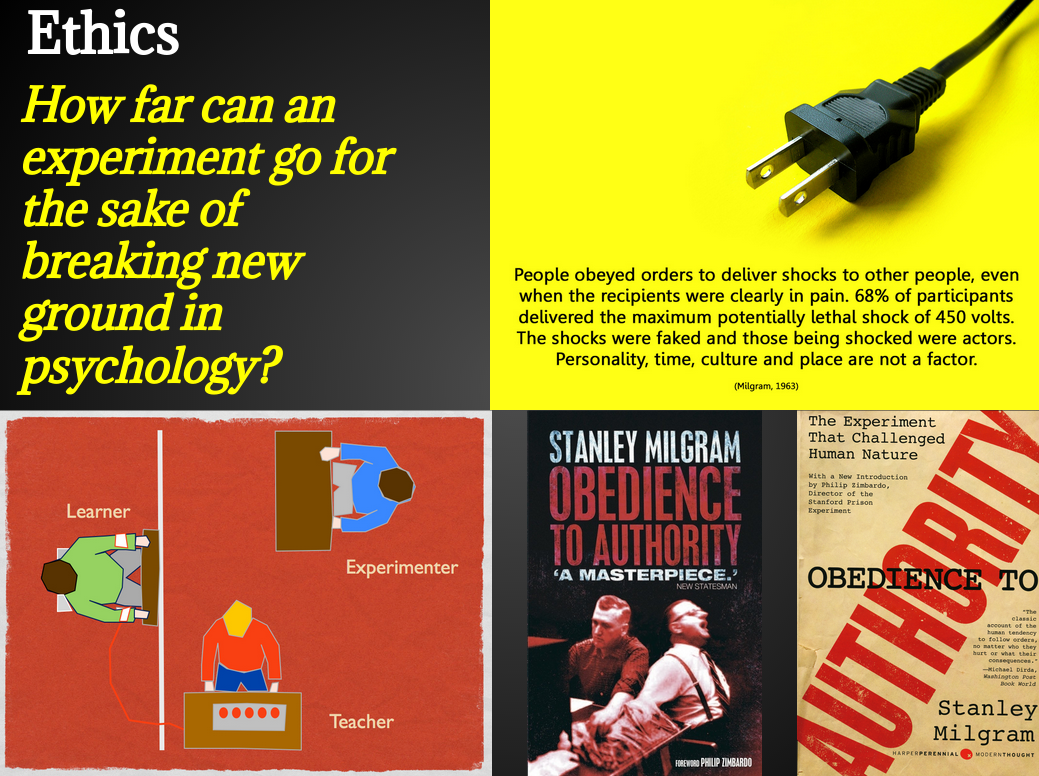Advanced Placement Psychology with Mr. Duez
Unit 1 - Evolution of Psych, Research Methods, & Personality
WEEK AT A GLANCE:MON: Experiments - Operationalize the variables; Gallery Walk
TUE: Research Statistics; Time to organize group presentation for next class.
WED/THU: Group Presentations over 50 Great Myths (5 min. each)
Notes & YouTube Lecture: About 50 Great Myths
Notes: How to do the Presentations
FRI: Quiz over Unit 1
TEST is next week - Wed/Thu
 |
| The null. Don't reject the importance. ;-) |
Monday, Sep 8, 2014
Quote: “People often say that motivation doesn't last. Well, neither does bathing – that’s why we recommend it daily.” - Zig Ziglar
Learning Targets:
Evolution of Psychology: Psych Approaches
Research: The Scientific Method, Design, Processing, and Ethical Issues.
1. Wilhelm Wundt is credited with being the founder of modern experimental psychology when he founded a lab at the University of Leipzig Germany in 1879.
2. Titchener, Watson, James, and Skinner are all important early psychologists.
3. Understanding the differences between the various approaches or perspectives - behavioral, biological, cognitive, humanistic, psychoanalytic, & sociocultural - is the key to understanding psychology.
4. The modern definition of psychology combines the scientific study of behavior and mental processes in humans and other animals.
5. Observation is the most important aspect of psychological research.
6. Operationalism means to define our variables in the manner in which we are going to measure them.
7. Correlation measures degree of relationship between variables and ranges from -1 to +1. Correlation does NOT imply causation.
8. Experimental, correlational, & descriptive methods all have strengths & weaknesses in describing human behavior.
9. Descriptive statistics describe the data gathered in research, while inferential statistics allow us to draw conclusions about how this data can be generalized to a larger population.
10. Following ethical principles is vitally important in any kind of psychological research.
Essential Questions:
1. What is psychology?
2. How does psychology impact my every day life?
3. How did psychology evolve as a science?
4. Compare and contrast the various types of approaches of psychology?
5. Explain the nature of psychology as an empirical science. How do psychologists determine results
6. Imagine the implications of a poor psychological experiment that fails to follow ethical principles. What are the ramifications?
Agenda:
1. DO NOW: Operationalize experiments: label variables - what is independent & dependent variables.
2. Notes, Discussion, Video: Research Methods: Experiments - variables.
3. Gallery Walk: Students will walk from poster to poster, reading each experiment, silently note the independent & dependent variable. (Any confounding variables?)
Assignment:
Read Unit 1 (Evolution of Psych, Research Methods, & Personality) & Take Notes
Focus on Target Sheets
Watch Mr. Duez's Video Notes & Slides
TEST IS WED/THU
 |
| The Milgram Experiment - sadly, Stanley was on to something. |
Tuesday, Sep 9, 2014
Quote: "If you want to achieve excellence, you can get there today. As of this second, quit doing less-than-excellent work." - Thomas J. Watson
Agenda:
1. DO NOW: What is the difference between a case study, a survey, and a naturalistic observation? What type of research are these three?
2. Notes, Video, Discussion: Research Methods, Statistics, and Correlations
3. Interactive quizzing over the content.
Assignment:
Read Unit 1 (Evolution of Psych, Research Methods, & Personality) & Take Notes
Focus on Target Sheets
Watch Mr. Duez's Video Notes & Slides
TEST IS NEXT WEEK - WED/THU
 |
| Summer Reading for AP Psychology. A great book. |
Wednesday, Sep 10 & Thursday, Sep 11, 2014
Quote: "Adversity is the state in which man mostly easily becomes acquainted with himself, being especially free of admirers then." - John Wooden
Learning Targets:
1. Personality refers to patterns of behavior that remain constant across situations.
2. There are different approaches to personality, including psychoanalytic, trait, humanistic, and learning theories.
3. Sigmund Freud is responsible for the psychoanalytic approach, which states that we are controlled by unconscious conflicts.
4. Trait theorists argue that our personality is simply a collection of traits.
5. Humanistic theorists argue that humans are basically good and strive for perfection.
6. Learning theorists argue that personality is nothing more than a shorthand description for clusters of behavior.
Essential Questions:
1. What is personality?
2. What are the psychological theories behind personality?
3. Given all of his popularity, what is Sigmund Freud's legacy?
4. Compare the different traits in the Trait Theory of Personality.
Agenda:
1. DO NOW: Prep presentation - be prepared to present to the class.
Notes & YouTube Lecture: About 50 Great Myths
Notes: How to do the Presentations
2. Presentations: 50 Myths Project
3. (If time remains) Crash Course Psychology: Personality #21
Assignment:
Focus on Target Sheets
Watch Mr. Duez's Video Notes & Slides
QUIZ on FRIDAY - UNIT 1
 |
| Id, Ego, & Superego. :) |
Friday, Sep 12, 2014
Quote: "Humanity is losing its geniuses. Aristotle died, Newton passed away, Einstein died, and I'm not feeling well today... "
1. Personality refers to patterns of behavior that remain constant across situations.
2. There are different approaches to personality, including psychoanalytic, trait, humanistic, and learning theories.
3. Sigmund Freud is responsible for the psychoanalytic approach, which states that we are controlled by unconscious conflicts.
4. Trait theorists argue that our personality is simply a collection of traits.
5. Humanistic theorists argue that humans are basically good and strive for perfection.
6. Learning theorists argue that personality is nothing more than a shorthand description for clusters of behavior.
Essential Questions:
1. What is personality?
2. What are the psychological theories behind personality?
3. Given all of his popularity, what is Sigmund Freud's legacy?
4. Compare the different traits in the Trait Theory of Personality.
Agenda:
1. DO NOW: Prepare for the Unit 1 Reading Check Quiz. You may use handwritten notes only.
2. QUIZ: Unit 1 - History & Methods; Personality
3. Review answers to the quiz.
Assignment:
Focus on Target Sheets
Watch Mr. Duez's Video Notes & Slides
TEST IS NEXT WEEK - WED/THU
